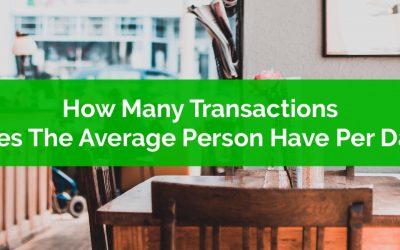Thank you for joining the waitlist!
You’re on the list for early access!
We will contact you via email when we’re ready for you to start your self-directed financial plan. In the mean time here is a quick preview…
Check out our latest blog posts…
6 Ways To Tell If You’re A Financial Hoarder
I have a confession to make, I’m a financial hoarder, or close to it.
What is a financial hoarder? And why does it matter? A financial hoarder is someone who keeps extra bank accounts, investment accounts, budget categories, credit cards etc. The more financial “stuff” you have, the more you likely it is that you’re a financial hoarder.
Understanding this is important because it can affect how you manage your finances.
Just like how physical clutter in your home can affect your ability to move and think, your financial clutter can also have an impact on how you manage your finances. The more financial “stuff” you have the more mental energy you’re going to devote to it. This can lead to financial fatigue where you just give up entirely, and that’s not good.
The simpler your financial life, the easier it is to manage, and the more likely it is that you’ll have success with your finances.
When I do the quiz below I’m close to being a financial hoarder. Let’s do a quick tally…
Three Important Financial Factors To Consider When Buying Your First Home
It’s September and, along with the cool weather, that means the real estate market is back in full swing. Often buyers and sellers take a break during the summer, these months are filled with outdoor activities, BBQs and vacations, so this leaves little time to go house hunting.
But now that everyone is back into their regular routine the number of people actively looking for a new home starts to go back up.
When buying your first home there are a few important financial factors to consider. Not only will this be one of the biggest purchases of your life, but your home also drives a lot of on-going costs as well. These on-going costs can impact your budget for years to come.
Buying the wrong house might mean extra costs you didn’t anticipate or don’t have room for in your budget. This can mean years of financial pain and tight budgets.
Buying the right house means you’ll have lots of room in your budget to do all the things you love to do, travel, hobbies, restaurants etc.
When buying a house there are three very important financial factors to consider.
How Many Transactions Does The Average Person Make Per Day?
How many transactions to does the average person make per day, one, two, three or more? For the last eight months I’ve been averaging about 1.3 transactions per day but I suspect the typical person averages closer to 2.
Since the beginning of January I’ve been religiously tracking my spending. This has been a departure from my normal budgeting routine but it’s been extremely interesting because of how much detail I now have on my spending habits.
For the longest time, I was an anti-budgeter. I would set a savings goal and then each month I would put away enough money to cover my savings goal plus any fixed expenses, then I would leave the rest in my checking account and spend freely. Over time I created good spending habits and most months I would have a bit left over.
Personally, I found the anti-budget to be a great balance between managing my money and my time. I could hit my financial goals but didn’t have to spend much time tracking expenses.
This all changed when I came across this super simple way to track your spending. You don’t need to give Mint all your passwords, you don’t need to pay YNAB a monthly fee, all you had to do was use Google Forms and Google Sheets to setup your own semi-automated spend tracking.
Adding a new transaction didn’t mean opening a spreadsheet, you could do it right from your phone. Tracking your spending took just 10-15 seconds after each transaction.
So, since January I’ve been tracking every transaction I’ve made and one thing I find super fascinating is how many transactions I make.



